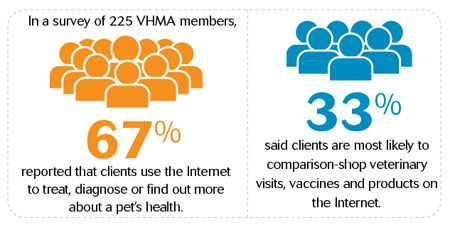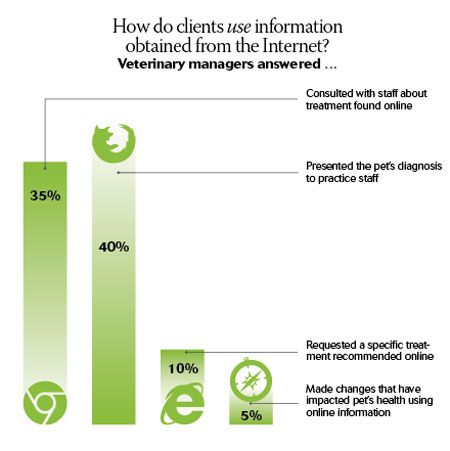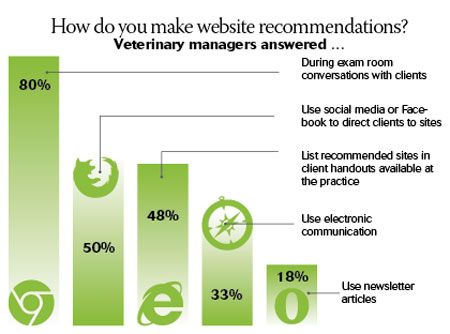Pet owner 2.0: Dr. Google or Dr. Vet?
DYK? Many clients who use Dr. Google arent sorry.
Is everybody really doing it? Using the Internet to find answers to health-related questions rather than consulting your practice? In theory it sounds so simple: Type in the symptoms, receive information and decide on a diagnosis. Simple, perhaps, but not easy because-as you know-pet owners misdiagnose. A lot.

So we've all been there, right? Clients march into the exam room armed with the wisdom of the web to present their diagnosis of their pet's condition to you. Maybe they confer with you about treatment or request a specific treatment that was touted online. And a very small percentage of clients go rogue and change a pet's treatment or diet based on online advice.

Despite research that suggests that using Google to diagnose illnesses could be a very bad way of getting appropriate medical treatment, 61% of clients aren't sorry-they don't regret relying on online advice.
Clients who've expressed remorse are those who've misdiagnosed a pet's condition, provided inappropriate treatment or delayed treatment, negatively impacting the pet's health, according to respondents.

For today's clients, the temptation to consult the Internet is great. But given the hit-or-miss nature of web information, the potential for harm to the pet is great too. While there's little hope of ending this pervasive practice, you can help ensure Internet searches are less haphazard by identifying credible links on your practice website. Then remind clients to discuss what they've learned with you before they seek any treatment or take action.
Christine Shupe, CAE, is the executive director of the Veterinary Hospital Managers Association. The association is dedicated to serving professionals in veterinary management through education, certification and networking.